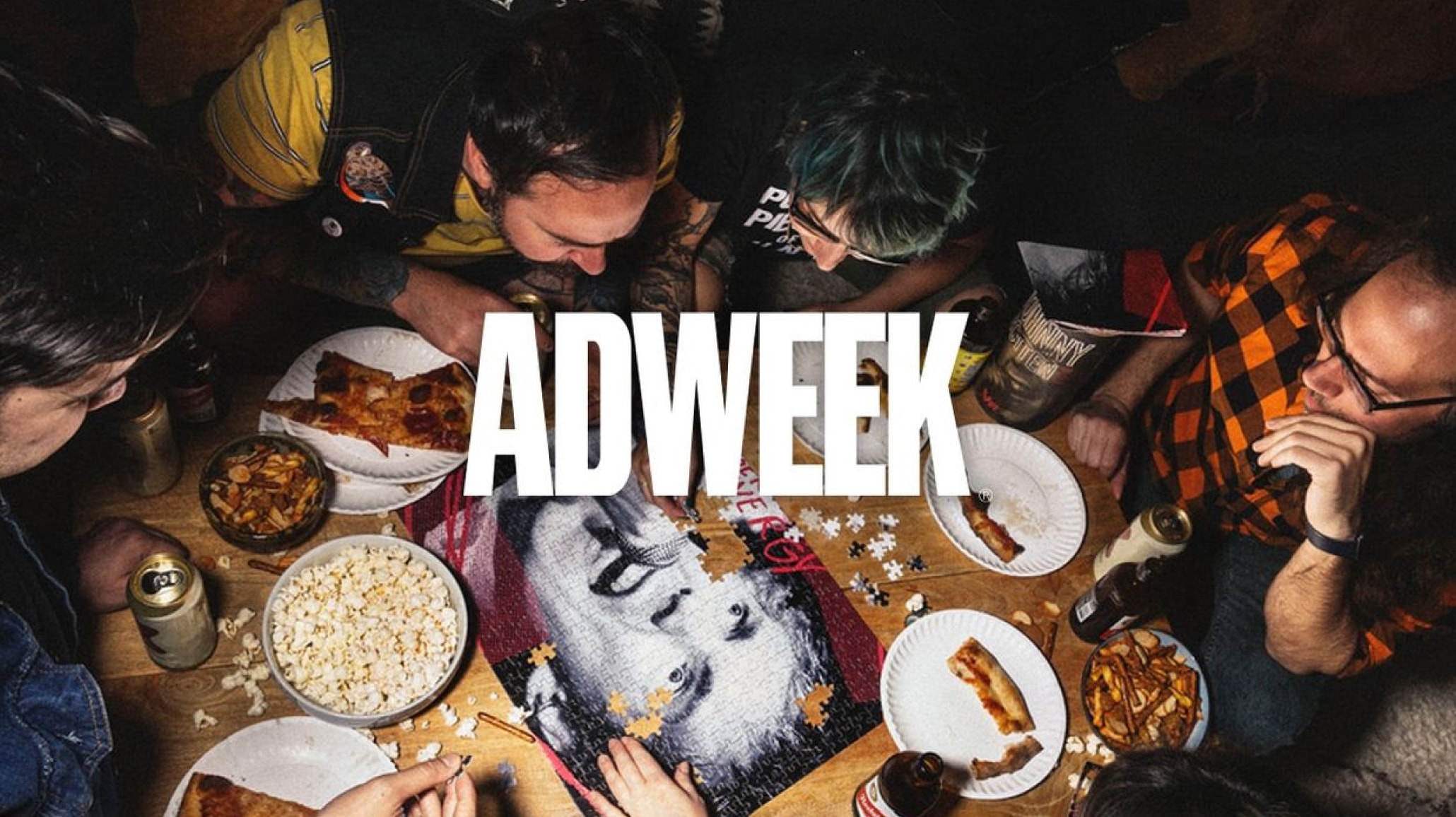Agencies Are Developing Their Own Products to Show Clients They Know How to Build a Brand

Shops can attract new business through bold product launches

Rochester agency Truth Collective launched a line of punk rock themed puzzles earlier this year. The Truth Collective Grant Plotkin’s professional success began when he learned how to facilitate uncomfortable conversations.
When Plotkin founded his own design studio in 2020, just a year after he graduated from Parsons, he wanted to give prospective clients a reason to trust him. He bought a domain name, solicited contentious questions from his circle of friends and launched his own card game. I Am On Edge, which defies all personal boundaries with questions like “What did you not get from your dad that you’d want to give to your kid?” and “Which of your friends do you pretend to like?” has become synonymous with the agency itself. After discovering the agency through buzz around the card game, contractor payment platform Archie tapped Plotkin and his team to redesign its website.
“We launched a product for supplemental revenue, but also to get our name out there in a different format,” said Plotkin, whose agency Meet The Edge works with clients like Yves Saint Laurent, Cipriani and The Paley Center for Media. “We’ve had so many new business conversations that I guarantee would not have happened if hadn’t invested in producing an original product.”
The ultimate goal of an agency is to convince brands that paying a group of strangers to market their product or service is a worthwhile investment. To maintain client credibility, proactive shops make an engaged effort to internalize the brand side of the business, whether that means sampling one of everything on a fast food client’s menu or taking up a welding course to better assist a manufacturing company. But beyond immersion stints, some agencies want to present potential clients with proof that they actually understand what it’s like to develop a brand from scratch. In-house brand building also allows agencies to explore the avant-garde concepts that aren’t welcomed by the average brief.
While brands launched by agencies can simply act as additional revenue streams, they are also investments in heightened credibility. They allow shops to expand their business ventures and strengthen existing relationships while experimenting with the younger platforms and bolder messaging that more conservative clients fear. And when these brands or products get picked up by trade publications, agencies increase their odds of being noticed by pitch consultants.
Making a case for yourself
Agencies attract new business by brandishing the work they’ve done for other clients, but the collaborative nature of the creative process with the brand and other agency partners can sometimes make it difficult to accurately pinpoint who did what work to develop the strategy and execute it. Contracts with brands also sometimes prevent agencies from talking about their work. When agencies work on launching their own brands, they are simultaneously crafting a more transparent case study by establishing that every detail of the business venture, from the color scheme to the product offerings, was formulated in-house.
Jeremy Schwartz, CCO and founder of creative agency Truth Collective, said that launching a brand out of the agency was an opportunity to “take [his] own medicine” by putting abstract advertising concepts into practice.
Truth Collective works to demystify the creative process with Schwartz’ seven criteria for a creative idea, which remind art directors and copywriters that the best concepts are simple, versatile and make the consumer feel like they are part of a movement or experience that spans beyond a single purchase. To prove to clients that this framework is effective, he has applied it to his punk rock-themed puzzle brand Punkzles, which launched earlier this year and is expected to hit big box retailers in 2023. While testing out his creative strategy on an internal brand, Schwartz has also naturally developed a newfound appreciation for the client side of the business.
“I have one foot straddled in the agency side and the other in the brand side, which allows me to bring more experience and understanding to my conversations with clients.”
Founder, CCO Truth Collective
Not every puzzle or card game consumer will be in the market for an ad agency, but successful branding undeniably strengthens shop visibility. Last October, 700 people entered an Instagram raffle to attend an I Am On Edge promotional event at a New York bar, which was an opportunity for Plotkin to delve into experiential marketing while also generating buzz around both the agency and the product.
“Launching I Am On Edge has really been an opportunity to build community,” he said. “As a design studio, we recognize that every single person that engages with us is not going to need us for design.”
Leaning into experimentation
Making significant business decisions based on social media sentiment is an uncomfortable concept for traditional marketers, but George Ellis isn’t afraid to admit that the consumer sometimes has better ideas than he does. Ellis, the owner and creative director of Austin-based agency Bandolier Media, claims to have created “the world’s spiciest coffee” and is getting ready to release new flavors that came directly from the TikTok comment section. Roasty Buds, which has garnered more than 17,000 followers on TikTok, has allowed the agency to expand its skillset while proving to old-school clients that investing in both organic and paid social—and using Bandolier to do so—is worthwhile.
Building a fanbase on TikTok has taught Bandolier Media concrete lessons, like how to reach beyond brand recognition to drive sales and the power of educational content on the platform. Working under an in-house brand means there is less at stake when taking risks, which also makes everything more enjoyable, said Ellis.
“When you’re working with a brand, there are going to be some limitations,” he said. “Being able to figure out what works on our own accounts gives us a little more credibility with our clients. The lack of rules also just makes it fun.”
